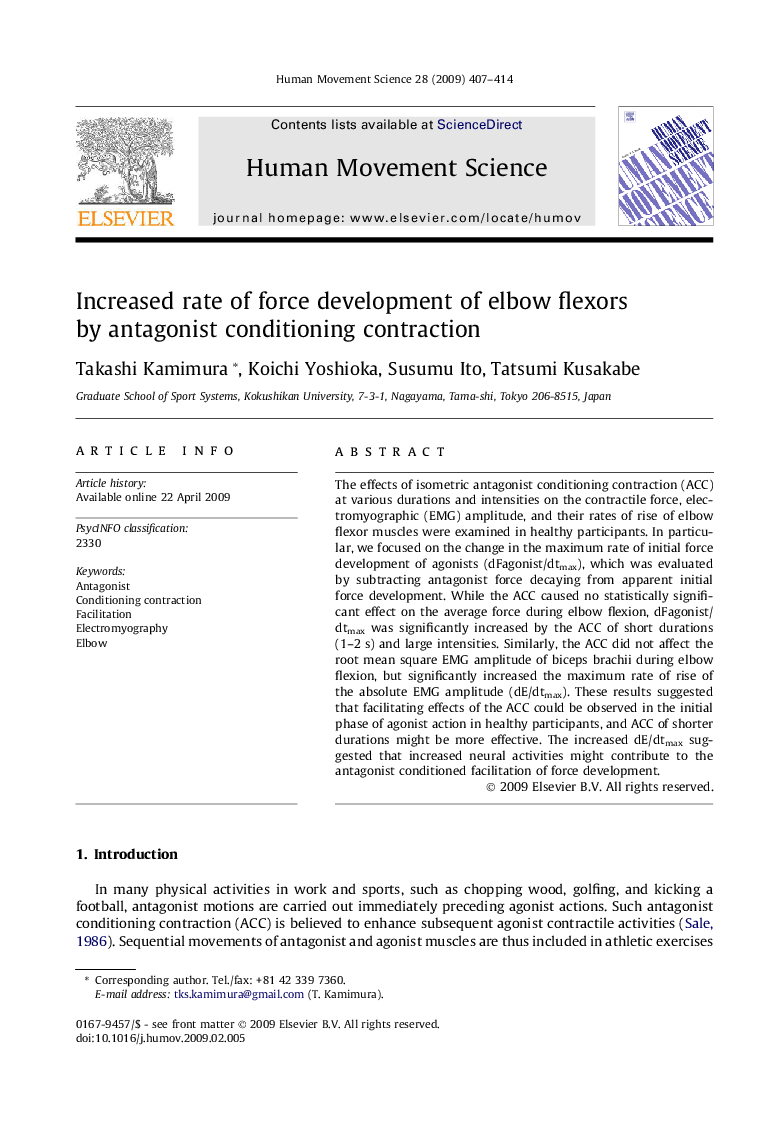| Article ID | Journal | Published Year | Pages | File Type |
|---|---|---|---|---|
| 928789 | Human Movement Science | 2009 | 8 Pages |
The effects of isometric antagonist conditioning contraction (ACC) at various durations and intensities on the contractile force, electromyographic (EMG) amplitude, and their rates of rise of elbow flexor muscles were examined in healthy participants. In particular, we focused on the change in the maximum rate of initial force development of agonists (dFagonist/dtmax), which was evaluated by subtracting antagonist force decaying from apparent initial force development. While the ACC caused no statistically significant effect on the average force during elbow flexion, dFagonist/dtmax was significantly increased by the ACC of short durations (1–2 s) and large intensities. Similarly, the ACC did not affect the root mean square EMG amplitude of biceps brachii during elbow flexion, but significantly increased the maximum rate of rise of the absolute EMG amplitude (dE/dtmax). These results suggested that facilitating effects of the ACC could be observed in the initial phase of agonist action in healthy participants, and ACC of shorter durations might be more effective. The increased dE/dtmax suggested that increased neural activities might contribute to the antagonist conditioned facilitation of force development.
